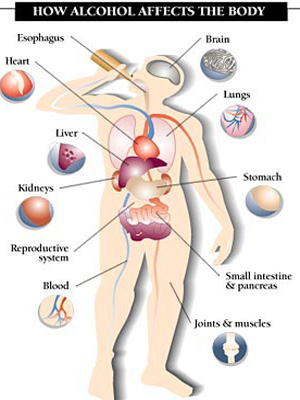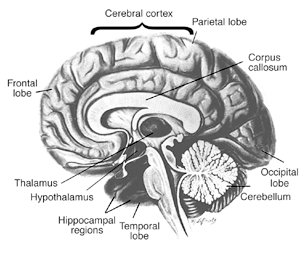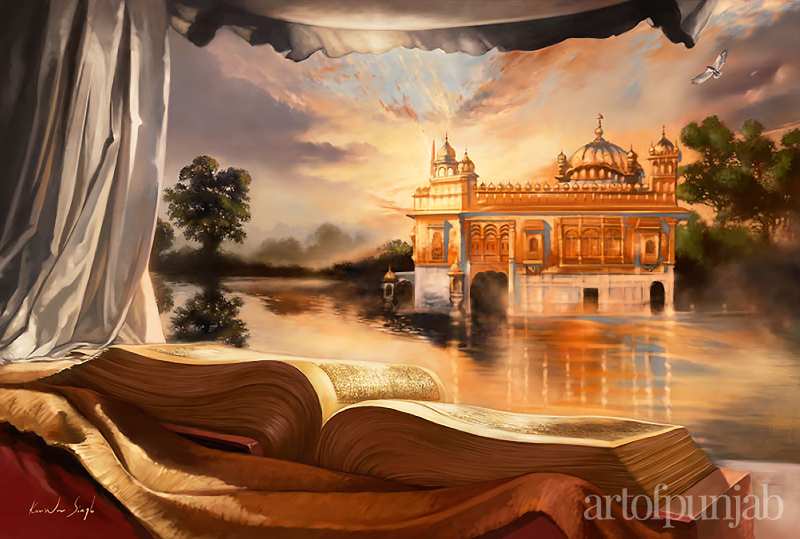This topic about drinking or consuming alcohol is probably one of the most commonly discussed topics.
Recently, someone did a survey among friends asking them to share their view on drinking and alcohol. Their responses were somewhat surprising. I guess the level of confusion and doubt out there about this topic is far greater than I had imagined.
Their responses:-
- What? But I’m Punjabi and Punjabi’s drink.
- Where in Gurbani does it say, Sikhs cannot drink beer?
- I’m good at heart and I don’t hurt people. I think its ok, if I had a drink once in a while.
- (This is my favorite…) ”Friend, now is the 21st century la. We need to move along with times. Those days where got Carlsberg or Guiness. Now there is..So chill la bro!”
- Due to my work, I need to entertain clients. I have no choice but to drink with them.
- What are you talking about? My father and my grandfather used to drink, so…how can I not drink?
- It’s ok to drink right? So long as I don’t get drunk? I’m sure drinking in moderation is ok.
- Once in a while I go to a club to chill out with friends. How to chill out without drinks?
- Guru Gobind Singh and the Nihangs also used to drink. Who says drinking is prohibited in Sikhism?
There were several other remarks, but more or less they were in line with the above .
Now, let’s take this topic and view it from 2 different perspectives.
First, we need to understand the effects of alcohol from a health perspective; what do doctors and the health fraternity have to say about it;
Next, we will see it from the perspective of Gurbani and what our Gurus have said about alcohol consumption.
This is important, because many times, I’ve seen scholars and parcharaks only telling us, don’t drink! and many times they don’t even tell you why or where in Gurbani is it written that Sikhs should not drink.
Perspective #1: Health
How Alcohol Affects Your Body
Drinking too much – on a single occasion or over time – can take a serious toll on your health. Here’s how alcohol can affect your body:
 Brain:
Brain:
Alcohol interferes with the brain’s communication pathways, and can affect the way the brain looks and works. These disruptions can change mood and behavior, and make it harder to think clearly and move with coordination.
Heart:
Drinking a lot, over a long period of time or too much on a single occasion, can damage the heart, causing problems including:
- Cardiomyopathy – Stretching and drooping of heart muscle
- Arrhythmias – Irregular heart beat
- Stroke
- High blood pressure
Liver:
Heavy drinking takes a toll on the liver, and can lead to a variety of problems and liver inflammations including:
Pancreas:
Alcohol causes the pancreas to produce toxic substances that can eventually lead to pancreatitis, a dangerous inflammation and swelling of the blood vessels in the pancreas that prevents proper digestion.
Cancer:
Based on extensive reviews of research studies, there is a strong scientific consensus of an association between alcohol drinking and several types of cancer. In its Report on Carcinogens, the National Toxicology Program of the US Department of Health and Human Services lists consumption of alcoholic beverages as a known human carcinogen. The research evidence indicates that the more alcohol a person drinks—particularly the more alcohol a person drinks regularly over time—the higher his or her risk of developing an alcohol-associated cancer. Based on data from 2009, an estimated 3.5 percent of all cancer deaths in the United States (about 19,500 deaths) were alcohol related.
Clear patterns have emerged between alcohol consumption and the development of the following types of cancer:
- Head and neck cancer: Alcohol consumption is a major risk factor for certain head and neck cancers, particularly cancers of the oral cavity (excluding the lips), pharynx (throat), and larynx (voice box). People who consume 50 or more grams of alcohol per day (approximately 3.5 or more drinks per day) have at least a two to three times greater risk of developing these cancers than nondrinkers. Moreover, the risks of these cancers are substantially higher among persons who consume this amount of alcohol and also use tobacco.
- Esophageal cancer: Alcohol consumption is a major risk factor for a particular type of esophageal cancer called esophageal squamous cell carcinoma. In addition, people who inherit a deficiency in an enzyme that metabolizes alcohol have been found to have substantially increased risks of alcohol-related esophageal squamous cell carcinoma.
- Liver cancer: Alcohol consumption is an independent risk factor for, and a primary cause of, liver cancer (hepatocellular carcinoma). (Chronic infection with hepatitis B virus and hepatitis C virus are the other major causes of liver cancer.)
- Breast cancer: More than 100 epidemiologic studies have looked at the association between alcohol consumption and the risk of breast cancer in women. These studies have consistently found an increased risk of breast cancer associated with increasing alcohol intake. A meta-analysis of 53 of these studies (which included a total of 58,000 women with breast cancer) showed that women who drank more than 45 grams of alcohol per day (approximately three drinks) had 1.5 times the risk of developing breast cancer as nondrinkers (a modestly increased risk). The risk of breast cancer was higher across all levels of alcohol intake: for every 10 grams of alcohol consumed per day (slightly less than one drink), researchers observed a small (7 percent) increase in the risk of breast cancer.
The Million Women Study in the United Kingdom (which included more than 28,000 women with breast cancer) provided a more recent, and slightly higher, estimate of breast cancer risk at low to moderate levels of alcohol consumption: every 10 grams of alcohol consumed per day was associated with a 12 percent increase in the risk of breast cancer.
- Colorectal cancer: Alcohol consumption is associated with a modestly increased risk of cancers of the colon and rectum. A meta-analysis of 57 cohort and case-control studiesthat examined the association between alcohol consumption and colorectal cancer risk showed that people who regularly drank 50 or more grams of alcohol per day (approximately 3.5 drinks) had 1.5 times the risk of developing colorectal cancer as nondrinkers or occasional drinkers. For every 10 grams of alcohol consumed per day, there was a small (7 percent) increase in the risk of colorectal cancer.
Immune System:
Drinking too much can weaken your immune system, making your body a much easier target for disease. Chronic drinkers are more liable to contract diseases like pneumonia and tuberculosis than people who do not drink too much. Drinking a lot on a single occasion slows your body’s ability to ward off infections – even up to 24 hours after getting drunk.
How Alcohol Affects Your Mind
Alcohol can affect all parts of your body, including your brain and your brain chemistry. Your brain functions best when its chemicals and processes are in balance. Alcohol disrupts that balance. It changes the neurotransmitters, which are the chemicals that help transmit signals from one nerve (or neuron) to another.
 The relaxed feeling you get when you have your first drink is the sign that your brain chemistry is starting to change. The alcohol is depressing the part of the brain associated with inhibition, so you may feel more confident and less anxious.
The relaxed feeling you get when you have your first drink is the sign that your brain chemistry is starting to change. The alcohol is depressing the part of the brain associated with inhibition, so you may feel more confident and less anxious.
Drinking also lowers the levels of serotonin in your brain – a chemical that helps to regulate your mood. When this happens, negative emotional responses, such as anger, aggression, anxiety or depression, can start to take over.
This not only happens each time you drink, but it can also have an accumulative effect so that if you drink regularly, your serotonin levels get lower and lower. Rather than improving your mood, alcohol can gradually make it worse.
Perspective #2: Gurbani
According to Gurmat, our Gurus have clearly stated, not in one, but several places in Sri Guru Granth Sahib. Guru Ji forbids Sikhs from consuming alcohol and not just alcoholic beverages but rather any type of substance which affects the mind.
Here is one shabad by Guru Amardaas Ji (3rd Guru Nanak) which directly talks about the effects of alcohol…
ਸਲੋਕ ਮਃ ੩ ॥
Salok Mehla 3
ਮਾਣਸੁ ਭਰਿਆ ਆਣਿਆ ਮਾਣਸੁ ਭਰਿਆ ਆਇ ॥
Manas Bheria Aania, Manas Bheria Aaye ||
ਜਿਤੁ ਪੀਤੈ ਮਤਿ ਦੂਰਿ ਹੋਇ ਬਰਲੁ ਪਵੈ ਵਿਚਿ ਆਇ ॥
Jit Pitey Mat Door Hoye, Berel Pevay Vich Aaye ||
ਆਪਣਾ ਪਰਾਇਆ ਨ ਪਛਾਣਈ ਖਸਮਹੁ ਧਕੇ ਖਾਇ ॥
Apna Praiya Na Pashanayee, Khasmo Tekey Khaey ||
ਜਿਤੁ ਪੀਤੈ ਖਸਮੁ ਵਿਸਰੈ ਦਰਗਹ ਮਿਲੈ ਸਜਾਇ ॥
Jit Pitey Khasam Viserey, Dargah Miley Sajaiye ||
ਝੂਠਾ ਮਦੁ ਮੂਲਿ ਨ ਪੀਚਈ ਜੇ ਕਾ ਪਾਰਿ ਵਸਾਇ ॥
Chutha Madd Mool Na Pichaee, Je Ka Paar Vasaey ||
ਨਾਨਕ ਨਦਰੀ ਸਚੁ ਮਦੁ ਪਾਈਐ ਸਤਿਗੁਰੁ ਮਿਲੈ ਜਿਸੁ ਆਇ ॥
Nanak Nadri Sach Madd Paiiye, Satgur Miley Jis Aaye ||
ਸਦਾ ਸਾਹਿਬ ਕੈ ਰੰਗਿ ਰਹੈ ਮਹਲੀ ਪਾਵੈ ਥਾਉ ॥੧॥
Sada Sahib Kei Rang Rahe, Mehli Pavay Thau ||1|| (SGGS:554)
Guru Amar Das shares a typical scenario where drinking friends meetup and where one person brings a full bottle of alcohol, and another fills his cup. By drinking alcohol, Guru Sahib says, one loses his ability to think straight (ਮਤਿ ਦੂਰਿ ਹੋਇ) and all sorts of weird thoughts enters into his mind. When intoxicated, one is not able to distinguish between right and wrong, his own and outsiders, and he faces a lot of pain. He ends up making the wrong decisions and has to face the consequences of his actions. Guru Sahib says, never ever consume alcohol, even if you’re left with no choice but to choose between drink and death. You can make the decision as no one can force it in your throat. When you make the right decision, (of not consuming alcohol), you will get closer to Guru (gyan, wisdom). This is what God’s grace is. You will be victorious, when you’re always in remembrance of God and Godly virtues reside within you. To attain Godly virtues should be the aim and once you’ve attained it, you will find true happiness. Those who have tasted this true happiness and love for Guru, there is no other intoxication which beats this. Know this as the truth.
Bhagat Ravi Daas says…
ਸੁਰਸਰੀ ਸਲਲ ਕ੍ਰਿਤ ਬਾਰੁਨੀ ਰੇ ਸੰਤ ਜਨ ਕਰਤ ਨਹੀ ਪਾਨੰ ॥
Sarsari Salal Kirt Baruni Re Sant Jan Karat Nahi Panang || (SGGS: 1293)
Enlightened beings do not consume alcohol even if its prepared using water of the Ganges river.
Guru Nanak says…
ਅੰਮ੍ਰਿਤ ਕਾ ਵਾਪਾਰੀ ਹੋਵੈ ਕਿਆ ਮਦਿ ਛੂਛੈ ਭਾਉ ਧਰੇ ॥੨॥
Amrit Ka Vapari Howei Kya Madd Shushei Bhau Dherey ||2|| (SGGS:360)
If one proclaims his live is of religious, how then can he consume alcohol (false nectar)? When imbued in the love of God, one remembers the teachings inscribed within Gurbani and God’s law (hukam) come to abide in ones mind.
And here is the sad truth!
If you ask anyone, is drinking bad? They will yes. If you ask a child is drinking bad, he will say of course! (with confidence). If you ask a drunkard, is drinking bad, and he will most likely say, yes too! So why do we still drink? Why do we still do things which are detrimental to our mind and health? Gurbani has an answer to this.
Bhagat Kabeer says…
ਕਬੀਰ ਮਨੁ ਜਾਨੈ ਸਭ ਬਾਤ ਜਾਨਤ ਹੀ ਅਉਗਨੁ ਕਰੈ ॥
Kabeer, Man Janey Sabh Batt, Janat Hi Augan Karey ||
ਕਾਹੇ ਕੀ ਕੁਸਲਾਤ ਹਾਥਿ ਦੀਪੁ ਕੂਏ ਪਰੈ ॥੨੧੬॥
Kahey Ki Kuslat Haath Deep Ku-ay Parey ||216|| (SGGS: 1376)
Bhagat Kabeer says, our mind is aware what is right and wrong, but even after knowing, one still chooses the wrong. Why does one think he is wise, when doing such wrong actions, will certainly sink one in misery and sorrow.
Conclusion
Drinking starts off casual (just 1 or 2 glasses at first) but one can get carried away and end up consuming a whole lot more without realizing. That’s how it always begins. And next thing you know, you’re sitting with a friends weekly and drowning yourself in alcohol.
I’ve seen friends mumbling rubbish out of their mouths after just a few glasses of beer. Without realizing, they said something so offensive and hurtful that they ended up arguing and fighting with one another. Some have even gone to the extent of killing one another after a few beers. You may think, how can this possibly happen? Well, it can because of the fact that when the mind is intoxicated, we tend to lose the ability think straight and decide at that moment in time, what is right and what is wrong. The mind gets clouded. Remember what Guru Ji said, “one loses the ability to think straight.” Alcohol clouds ones judgement to think and act rightfully.
Alcohol plays tricks. It makes us lose ourselves little by little, day by day. We forget who we are and whom we’re talking to. We lose the ability to distinguish between loved ones, siblings, parents and some even become angry if anyone were to talk against their drinking buddies. Alcohol, makes us lose all sense of direction and dignity.
Piece of advice: Stay away from alcohol, live a sober and healthy lifestyle. Keep the mind intact and fresh so that we may use our bibek-budhi (discerning intellect) to understand Gurbani and incorporate the divine instructions and teachings of our Gurus in our lives. This is the true intoxication.
References:
- https://www.healthnavigator.org.nz
- https://pubs.niaaa.nih.gov/
- https://www.healthline.com/
- https://www.niaaa.nih.gov/publications/brochures-and-fact-sheets/hangovers
- National Cancer Institute – https://www.cancer.gov/about-cancer/causes-prevention/risk/alcohol/alcohol-fact-sheet



